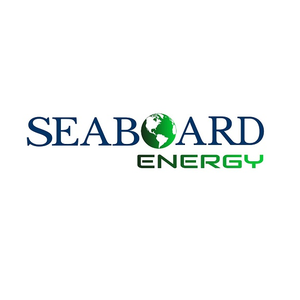High Plains Bioenergy rebrands as Seaboard Energy

May 17, 2019
BY Ron Kotrba
High Plains Bioenergy and its biodiesel marketing division HPB Biodiesel Inc., wholly owned subsidiaries of Seaboard Corp. and owner of two U.S. biodiesel plants, have changed names to Seaboard Energy Marketing Inc. The company, which says will routinely go by simply “Seaboard Energy,” advises no ownership changes have taken place and that the name change is a rebranding effort as the business expands and grows into new areas.
The company purchased an idle cellulosic ethanol plant in Hugoton, Kansas, from Synata this February, which bought the plant out of bankruptcy from Abengoa Bioenergy in 2016.
Advertisement
“Our team is currently evaluating the acquired assets to determine the best potential opportunities and uses for the property, including modifications to produce renewable diesel,” Seaboard Energy stated.
Jessica Humphrey, Seaboard Energy sales and supply chain manager, told Biodiesel Magazine the company’s two active biodiesel plants are changing names too.
Advertisement
The 30 MMgy enzymatic biodiesel production facility in St. Joseph, Missouri, formerly owned by Blue Sun Biodiesel, which High Plains Energy acquired in 2016, is changing its name from HPB-St. Joe Biodiesel to Seaboard Energy Missouri LLC.
The company’s biodiesel plant in Guymon, Oklahoma, is changing names from High Plains Bioenergy LLC to Seaboard Energy Oklahoma LLC. While the plant has historically featured a nameplate capacity of 30 MMgy, Mel Davis, Seaboard Foods vice president of bioenergy, told Biodiesel Magazine the facility has gradually increased its capacity to 45 MMgy over the past few years through a series of debottlenecking efforts.
The company says the rebranding and name change will not impact its shipping, billing and payment addresses, tax ID, or its banking information. The EPA Company ID number, 3384, will remain the same. Once the name change is finalized with EPA, which the company expects to be effective by June 10, its RINs for all locations will be under the company name of “Seaboard Energy Marketing, Inc.” in EPA’s moderated transaction system (EMTS).
Related Stories
CoBank’s latest quarterly research report, released July 10, highlights current uncertainty around the implementation of three biofuel policies, RFS RVOs, small refinery exemptions (SREs) and the 45Z clean fuels production tax credit.
The U.S. Energy Information Administration maintained its forecast for 2025 and 2026 biodiesel, renewable diesel and sustainable aviation fuel (SAF) production in its latest Short-Term Energy Outlook, released July 8.
XCF Global Inc. on July 10 shared its strategic plan to invest close to $1 billion in developing a network of SAF production facilities, expanding its U.S. footprint, and advancing its international growth strategy.
U.S. fuel ethanol capacity fell slightly in April, while biodiesel and renewable diesel capacity held steady, according to data released by the U.S. EIA on June 30. Feedstock consumption was down when compared to the previous month.
XCF Global Inc. on July 8 provided a production update on its flagship New Rise Reno facility, underscoring that the plant has successfully produced SAF, renewable diesel, and renewable naphtha during its initial ramp-up.
Upcoming Events










